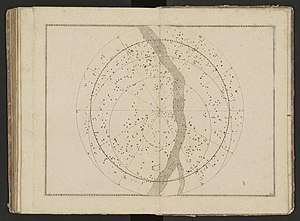
Back تاريخ علم الفلك Arabic Historia de l'astronomía AST Astronomiya tarixi Azerbaijani Гісторыя астраноміі Byelorussian История на астрономията Bulgarian জ্যোতির্বিজ্ঞানের ইতিহাস Bengali/Bangla Història de l'astronomia Catalan Dějiny astronomie Czech Astronomiens historie Danish Geschichte der Astronomie German


The history of astronomy focuses on the contributions civilizations have made to further their understanding of the universe beyond earth's atmosphere.[1] Astronomy is one of the oldest natural sciences, achieving a high level of success in the second half of the first millennium. Astronomy has origins in the religious, mythological, cosmological, calendrical, and astrological beliefs and practices of prehistory. Early astronomical records date back to the Babylonians around 1000 BCE. There is also astronomical evidence of interest from early Chinese, Central American and North European cultures.[2]
Astronomy was used by early cultures for a variety of reasons. These include timekeeping, navigation, spiritual and religious practices, and agricultural planning. Ancient astronomers used their observations to chart the skies in an effort to learn about the workings of the universe. During the Renaissance Period, revolutionary ideas emerged about astronomy. One such idea was contributed in 1593 by Polish astronomer Nicolaus Copernicus, who developed a heliocentric model that depicted the planets orbiting the sun. This was the start of the Copernican Revolution. [3]
The success of astronomy, compared to other sciences, was achieved because of several reasons. Astronomy was the first science to have a mathematical foundation and have sophisticated procedures such as using armillary spheres and quadrants. This provided a solid base for collecting and verifying data.[4][5] Throughout the years, astronomy has broadened into multiple subfields such as astrophysics, observational astronomy, theoretical astronomy, and astrobiology. [6]
- ^ https://www.amnh.org/explore/ology/astronomy/whatisastronomy#:~:text=Astronomy%20is%20the%20study%20of,faraway%20galaxies%20and%20tiny%20particles[permanent dead link].
- ^ "History of Astronomy".
- ^ "A brief history of astronomy". 12 March 2020.
- ^ Fabian, Andy (2010). "The impact of astronomy". Astronomy & Geophysics. 51 (3): 3.25 – 3.30. doi:10.1111/j.1468-4004.2010.51325.x.
- ^ "Astronomy - Ancient, Celestial, Observations". Encyclopedia Britannica.
- ^ "Astronomy: Everything you need to know". Space.com. 28 October 2022.